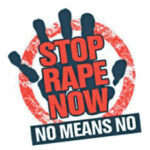
You seem to love photographing people. Ted Grant is quoted as saying “When you photograph people in color, you photograph their clothes. But when you photograph people in black and white, you photograph their souls!” Is this something you relate to?
Yes, I do love making images of people, how they live, what they do, how they do what they do, their beliefs and what makes them who they are, hence I will say I don’t just photograph people, I photograph their souls. So yes, I relate to Ted Grant’s quote probably not in the colour scheme but for what it stands for; the essence of photography.
When did your love for photographing people start? Was there a particular incident that triggered that?
I would be lying if I say my love for photography started from birth but I’ve always loved images for as long I can remember. My dad had a Polaroid camera while we were kids so I got used to being in front of camera at an early age. Fast forward to 2008 during my service year in Abu-Odua Local Government of Rivers State, that interest came back when I met Yomi(a corps member and a friend during service) who owns a camera and was always showing me pictures he made while at the university.
In 2011, I started working for a media production company. We were into making films, documentaries, TV programmes and so many other media related stuff, only this time I had the opportunity to handle a camera as a cinematographer but my interest began to lean more towards still images because for me, photography is the freezing of a moment in time that remains alive forever. So being alive to my new interest and to avoid stories that touch (knowing I work for someone and how my new interest was going to conflict with the company’s interest) I saved some money and bought myself a camera and the rest is history.
You have just returned from Bamako Biennale. What can you tell us about your experience there?
Yes, I and my colleague, Tersoo Gundu, just returned from the Bamako Photography Biennale (recounted de Bamako) with the theme ‘Afrotopia. I’ll love to describe my experience as a turning point in my photography, I was exposed to what photography should be, a better understanding of the quote ‘the world is blind without photography’. My Bamako trip has given me a different view of the world as a human being and as a photographer
How do you think this experience will change the way you work?
My perspective as a photographer has changed. The beauty of photography for me now is no longer in the number of people telling me how good my images are or how many likes or comments I get on social media or the awards or recognition I get but the impact my images will make in a changing world. So my experience from Bamako has thought me to work not only as someone who makes photographs but as someone who wants to make an impact and be part of history.
You are keen on getting more people taking photographs? Can you tell us why?
One thing I believe is a major downside to us as Africans is the fact that we have little and in some cases no documentation of ourselves, most of the African narratives around has been the documentation of foreigners and that, for me, is their perspective, we too should have ours. I believe the African stories must and should be told by Africans hence the reason why we at Photocarrefour feel the need to encourage people to take photographs of an evolving Africa.
Speaking of Photocarrefour? How did you guys come about the idea of Photocarrefour? What has the journey been like?
Photocarrefour was born out of the need to be better and not necessarily the best in what we do, a burning desire to do something that will outlive us. In Abuja particularly, we felt there’s much more we can do with photography than we are already doing, we wanted something bigger than us, something with an even greater impact on photographers and the lovers of the art, so we (Tersoo, Philip, Pope, Kwalmi and myself) started brainstorming on building a community, a photography collective of some sort to advance the course of photography in Abuja and beyond, that is how we got here. Photocarrefour was conceived and executed without a budget or any monetary sponsorship in three weeks.
Which photographers have inspired the way you work the most?
So many of them, the list is endless but mostly African photographers, the likes of Emeka Okereke, Andrew Esiebo, Uche Iroha, Tom Saater, Mudi Odibo, Fati Abubakar, Uwem Udor and so many more. Being the best has never been my thing so I get inspired when I see a good photographs.
Since you became a professional photographer, what would you say has been your greatest accomplishment?
Wow! Greatest accomplishment? Let’s see . . . Well, my greatest accomplishment as a photographer is not even how much I’ve made or the award, recorgnitions I’ve received but in whom I have become and the impact I’ve made. Nothing gives me joy more than when I meet people and they tell me in appreciation how engaging my images have been to them and the connection made, that for me is my greatest achievement.


